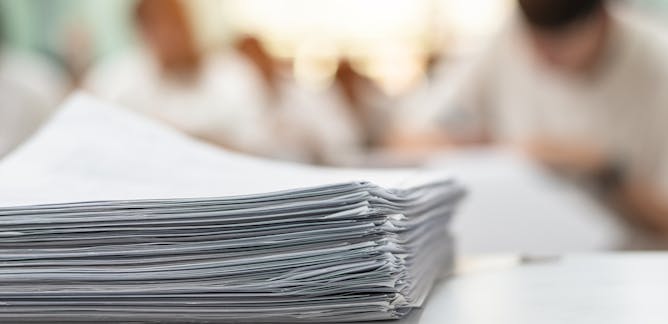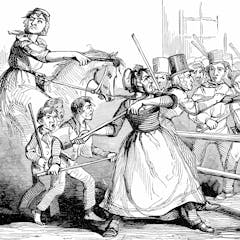
Articles on United Kingdom (UK)
Displaying 1 - 20 of 791 articles

A new study reveals the extent of the COVID pandemic’s effect on headteachers, including high workloads, stress and exhaustion.

The SS Hartdale was sunk by a German U-boat in 1915 and its final resting place had long been unknown.

Operation Legacy highlights the repercussions faced when people with power determine what information is available to interpret events of the past.

Spent nuclear fuel remains dangerous for so long that languages can disappear and humanity’s very existence cannot be guaranteed. So how do we communicate information about repositories into the future?

Being severely sunburnt as a child more than doubles the chance of developing future skin cancer but less than half of primary schools questioned in new research have a sun safety policy.

The strike saw different political factions uniting, which eventually led to a more collaborative form of politics in Wales.

Increasing life expectancy and falling birthrates means many of us may have to keep working until beyond 71 years of age.

Research has revealed how British otters may have been able to recover from species loss in the 1950s with the help of otters from Asia.

NATO members, particularly those in eastern Europe, fear a Russian invasion of their territory. By stationing some of its nuclear weapons in the U.K. again, the U.S. could ease those fears.

Maths plays a crucial role in new research which finds that bats “leapfrog” their way home at night.

Since the outset of Israel’s invasion of Gaza, the West has aimed to prevent the conflict from escalating regionally. But strikes on the Houthis in Yemen by the U.S. and the U.K. may ensure it will.

Bard Hedd Wyn was killed in action in France in 1917.

Catalonia and post-Brexit U.K. illustrate the dangers of separatism and divisive rhetoric. Both Alberta and Ottawa must act to address western alienation and prevent a catastrophic scenario.

The Mari Lwyd and the plygain are two prominent Welsh traditions celebrated over Christmas and the new year.

Westminster has rebuked Scotland’s first minister for holding his own bilateral meetings without a UK diplomat being present.

Colonialists daily reinforced a hierarchy that allowed white people to abuse Africans.

New research reveals the digital divide that was exposed by the COVID pandemic.

Electric arc furnaces can use up to 100% scrap steel as its raw material, resulting in a significant reduction in emissions.

Fewer than a quarter of once-colonized countries make official government-to-government requests for an apology or reparations.

The Rebecca riots saw Welsh farmers disguised as women destroy tollgates as a way of challenging what they believed was an oppressive taxation system.





